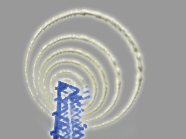| |
Technology in Weimar: Monstrosity or Savior?

Web-Based Version of the
Course
Course Description
The Weimar Republic has been described by many historians as the crucible
in which the roots of National Socialism were forged. Although characterized
by economic depression, political factionism and social decline, Weimar
Germany also experienced a profound cultural growth. At the heart of
this cultural growth was technology, both as mode of artistic production
in the form of film and photography, and as object of critical response
from liberal and conservative commentators alike.
With artistic trends like Expressionism, Neue Sachlichkeit,
Dada and Bauhaus, artistic techniques such as photomontage, cabaret,
mechanical music and serialized novels, and a panoply of ideologies
marking each segment of the political landscape, the position of technology
in the Weimar Republic was as multifarious as the artistic, political
and economic arenas that used it as its example. Using examples from
the worlds of literature, art, film and politics, we will investigate
the role of technology in Weimar culture, and seek to understand its
positioning as a political and artistic tool. A few guiding questions
for the seminar are:
- In what ways is technology viewed politically and
artistically in Weimar?
- How do conservative and Marxist attitudes towards
technology converge?
- Why is technology so prevalent as a theme within
the many art trends in Weimar?
Source Material
Literary and Theoretical Background Texts
W. Benjamin, "The Work of Art in the Age of Mechanical Reproduction"
A. Feenberg, Critical Theory of Technology
M. Heidegger, "The Origin of the Work of Art"
M. Heidegger, "Creative Landscape: Why do I Stay in the Provinces?
H. v. Hofmannsthal, "Literature as the Spiritual Space of the Nation"
E. Jünger, The Storm Of Steel
A. Kaes, et. al. The Weimar Republic Sourcebook (Excerpts)
F. Kafka, "In the Penal Colony"
O. Spengler, Man And Technics : A Contribution To A Philosophy Of
Life
Films
The Golem, dir. C. Boese
M, dir. F. Lang
Metropolis, dir. F. Lang,
The Last Laugh, dir, F. W. Murnau,
Berlin: Symphony of a Great City, dir, W. Ruttmann
The Cabinet of Dr. Caligari, dir. R. Wiene
Artists and Art Movements
Raoul Hausmann, Dada, Bauhaus, George Grosz, Oskar Schlemmer,
Käthe Kollwitz, Max Ernst, Neue Sachlichkeit
|
|

